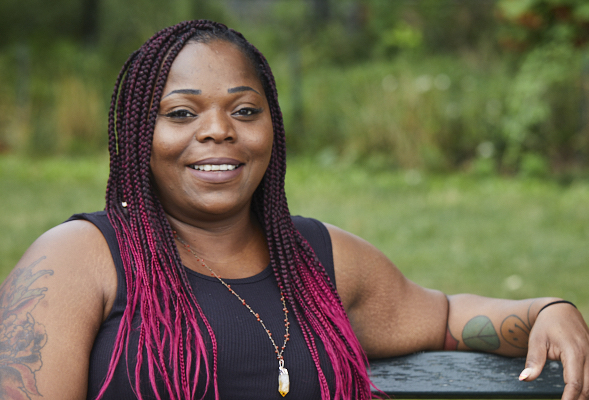
Halimah Washington, Rise Community Coordinator, discusses the connection between child care and family policing, how child care supports family safety and well-being and why Rise identified access to child care as a policy priority.
Q. Why is the campaign for child care important to you as a parent?
A. Universal child care is important to me as a parent because I have children that need child care after school, sometimes before school, and during the days when school is not in session. Not only do families need child care, but childcare providers need to be paid a living wage so that they can live and eat and provide quality services to our children.
Q. How is this movement for universal child care connected to family policing? How does child care contribute to safety and well-being for children and parents?
A. It’s connected to the family policing system because when parents don’t have adequate child care, it can lead to involvement with the family policing system. If a parent has an older child in the home, for example, they may ask the older child to take care of younger children for them. Parents have gotten in trouble for that. Parents have had an investigation launched, even had their children taken away, for that reason.
When parents don’t have adequate child care, they may be in a situation where they end up having someone who is not safe to be around the child watch the child. That could be dangerous for the child—and could lead to a traumatic investigation, as well.
Without accessible child care, a parent may have to leave their child home alone in order to go to work, pay the bills, keep the lights on, keep a roof over their head and keep food on the table. If a parent has safe, adequate child care, the parent can go to work without worrying about whether their child is safe and has food in their belly. The child care provider is able to offer a safe environment where the child is fed and is with other children their age. It works out better for parents, eases their mind and makes them less stressed and traumatized. Constantly having to think about the safety of your children while you’re at work is stressful. If parents have access to child care, that’s one less thing they have to worry about.
Q. What did you hear from parents about the need for child care in Rise community conversations and community report backs? How did Rise choose this issue as a policy priority?
A. As an organization primarily made up of parents impacted by the family policing system, we know from experience about the need for safe, accessible child care that is not affiliated with ACS. During our community conversations and community report backs, we heard about the need for adequate child care, and the need for childcare to be disentangled from ACS and other systems that police, surveil and punish Black and brown families and communities. We heard from parents that in order to get an ACS child care voucher for five years, one has to be under investigation or in danger of losing their children to the family policing system.
A person who receives an HRA voucher can access free child care, but has to meet income requirements. If you make a dollar over that income requirement, you don’t qualify for free child care any longer. You don’t make enough money to afford child care, but make too much—even a dollar too much—to qualify for free child care.
Based on our experiences and what we heard from parents, our participatory action research report calls for high-quality, safe, accessible respite and community-based child care that is not affiliated with ACS. We met with the Alliance for Quality Education (AQE) and learned about the campaign for universal child care and decided it makes sense for us to join them in that campaign. As part of launching our own advocacy campaign, we are also calling for the disentanglement of child care services from ACS. We are calling for a more equitable child care system to be created so parents who need child care the most are able to access it without all of the red tape attached or ACS involvement.
We encourage everyone who cares about children to get involved in the campaign for universal child care!
